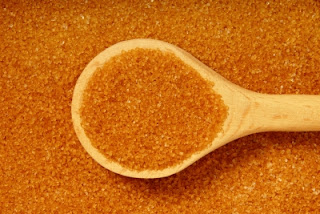I hope to clear up one message here today. Does fructose (the sugar found in fruit and high fructose corn syrup) make you feel hungrier?
Many people are worried that the cause of obesity is an increase in fructose consumption. They blame high fructose corn syrup and products that are sweetened with it. We may still have a lot to learn about about the many causes of obesity besides diet and exercise. But there is certainly not enough evidence to say that fructose is the culprit. So if you're looking for a quick answer from a reliable source, here it is: No. Fructose does not fuel hunger and the desire to eat more.
This recently published study tells us that according to brain scans, the brain does not respond to fructose in the same way that is does to glucose, in turn possibly causing us to stay hungry. Therefore the role of fructose and other nutrients in satiety (keeping us full) may be complex. But please, keep reading.
Here's the thing--fructose is not found all by itself in nature or even in high fructose corn syrup. So we can't blame fructose for making us feel hungry or for making us fat. High fructose corn syrup's name is misleading; this sweetener that has vastly replaced sucrose (table sugar) in food products is actually a combination of fructose and glucose. It is not simply fructose. It's a sugar just like white table sugar or honey. Fruit, which is also a source of fructose, contains glucose too. You rarely, if ever, find fructose alone. So alone, it just can't be blamed for hunger and weight gain.
So why are so many Americans overweight (70% to be exact)? The primary causes are eating too much, eating the wrong things too often and not exercising enough.
For example, if you drink a "regular" soda, it doesn't matter if it is sweetened with sugar or high fructose corn syrup--you have consumed roughly 140 calories. That means that in order to remain in energy balance to maintain your weight, you must burn these 140 calories. To burn them, you'll need to walk briskly for about a mile. Plus, after drinking a soda, it's likely that you'll be hungry shortly after because your stomach will soon be empty. Sugar is quickly absorbed into your bloodstream and you're body will consequently be asking you for more fuel, aka food. Trade that 140 calorie soda for a small apple and a tablespoon of peanut butter and you'll be satisfied for longer. Not to mention you would have consumed fiber, vitamins, minerals and healthy fats!
Bottom line: It's not the sweetener that's making us hungry or making us eat more. It's what we're eating and how much we're eating in balance with physical activity. It is safe and okay to consume sugars in moderation--of any type. Moderation and balance are the keys. Calories can add up quickly and I'm sorry to say that most of us don't burn the extra calories we take in. And if you're trying to lose weight, you must take in fewer calories than your body needs.
My advice?
- Make sure that most of your diet is comprised of nutritious foods such as whole grains, fruits, vegetables, low-fat dairy, lean protein and healthy fats. These are foods that serve important functions in your body and will keep you full too.
- Swap sugar-sweetened beverages for calorie-free beverages when possible.
- Limit your intake of sweets, candy and desserts (including products that are made with a lot of added sugar).
- If you do consume added sugars or extra calories, eliminate something else from your diet that day and/or go out and get some exercise!
- See a Registered Dietitian. We're experts in nutrition and can formulate a meal plan that will meet your needs while supporting you along the way.

No comments:
Post a Comment
What do you think?